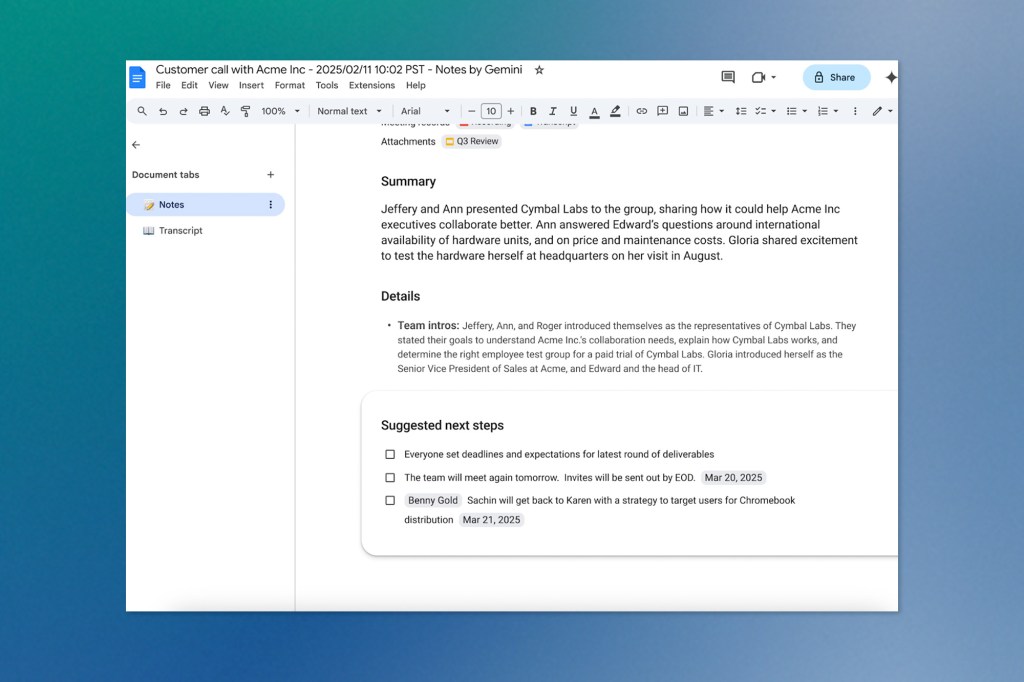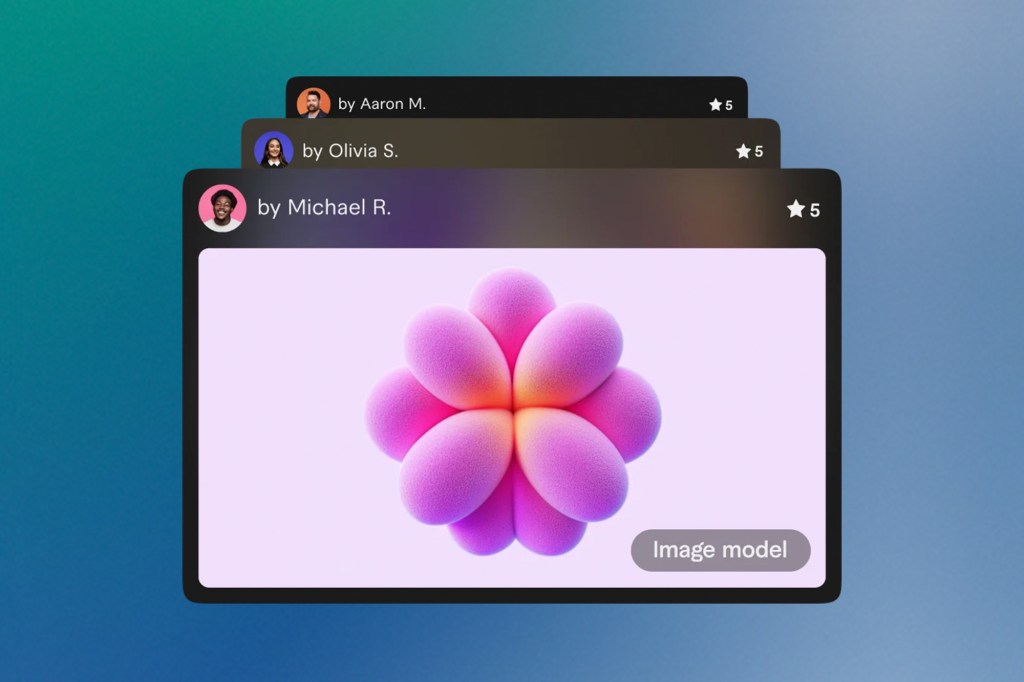This week’s roundup brings several notable developments across the industry. Former OpenAI CTO Mira Murati has launched Thinking Machines Lab with an impressive team of AI veterans. Google Meet has enhanced its transcription capabilities with AI-generated action items. At the same time, Anthropic has released Claude 3.7 Sonnet, its first hybrid reasoning model, alongside Claude Code, a new command-line tool for developers, and Fiverr is expanding into AI-powered freelancing with models trained on creators’ work. Finally, HackerRank has announced its AI Day 2025 event, focusing on tech hiring and skill development.
Former OpenAI CTO Mira Murati Launches Thinking Machines Lab
In a significant development for the AI industry, former OpenAI CTO Mira Murati has officially launched her new startup, Thinking Machines Lab. After months of speculation following her departure from OpenAI last October, Murati has assembled an impressive team, including OpenAI co-founder John Schulman, chief scientist, and former OpenAI chief research officer Barret Zoph, CTO.
The company emerged from stealth mode with ambitious goals to build AI systems that are “more widely understood, customizable, and generally capable” than current offerings. According to their announcement, Thinking Machines Lab will focus on developing multimodal AI systems designed to work collaboratively with humans and adapt to various levels of expertise.
Murati’s new venture identifies several critical gaps in today’s AI landscape:
– Scientific understanding of frontier AI systems lagging rapidly advancing capabilities
– Concentration of knowledge about how these systems are trained within a few top research labs
– Difficulty in customizing AI systems to specific needs and values
The startup plans to build models “at the frontier of capabilities” in domains like science and programming, emphasizing AI safety. Their approach includes preventing misuse of released models, sharing best practices for building safe AI systems and supporting external research on AI alignment.
Thinking Machines Lab has assembled a team of 29 employees from leading AI organizations, including OpenAI, Character AI, and Google DeepMind, and is actively hiring for additional positions.
Google Meet Adds AI-Generated Action Items to Meeting Transcripts
Google is enhancing its Gemini-powered note-taking feature in Google Meet with a practical new capability. The AI now automatically generates a checklist of suggested next steps at the end of your meetings, complete with due dates and assigned stakeholders for each task. This builds upon the AI transcription feature launched in August 2024, which already provides voice-to-text transcription that separates speakers and creates a comprehensive account of discussions. After meetings conclude, the system produces a structured summary in a Google Doc that’s automatically shared with all participants.

According to Google, the rollout of this new action items feature will proceed “at a much slower pace than usual” as the company carefully monitors performance and quality. This cautious approach suggests that Google is mindful of accuracy concerns, particularly when it comes to correctly identifying and assigning action items.
While AI note-taking tools raise legitimate concerns about exposing sensitive information to large language models, they offer significant time-saving benefits for busy professionals. For many Workspace teams, the convenience of automatic action item generation could outweigh potential privacy considerations, especially for routine meetings.
Anthropic Releases Claude 3.7 Sonnet and Claude Code
Anthropic has announced Claude 3.7 Sonnet, described as “the first hybrid reasoning model on the market.” This new model introduces an innovative approach to AI reasoning by integrating both quick responses and extended, step-by-step thinking within a single model.
Claude 3.7 Sonnet’s key innovation is its ability to switch between standard mode (similar to an upgraded Claude 3.5 Sonnet) and an extended thinking mode that enables self-reflection before answering. When using the API, developers have fine-grained control over the “thinking budget,” allowing them to specify how many tokens (up to the 128K token output limit) the model can use for its reasoning process.
According to Anthropic, the new model shows powerful coding and improvements in front-end web development. This claim is supported by early testing from companies like Cursor, Cognition, Vercel, Replit, and Canva, who reported Claude’s leadership in real-world coding tasks ranging from handling complex codebases to building sophisticated web applications from scratch.
Claude 3.7 Sonnet is now available on all Claude plans (including the free tier) and through the Anthropic API, Amazon Bedrock, and Google Cloud’s Vertex AI. The extended thinking mode is available on all surfaces except the free tier. Pricing remains consistent with previous models at $3 per million input tokens and $15 per million output tokens, which includes thinking tokens.
Anthropic has also expanded GitHub integration to all Claude plans, enabling developers to connect their code repositories directly to Claude for a more seamless coding experience.
Alongside the model, Anthropic introduced Claude Code, a command-line tool for “agentic coding” available as a limited research preview. This tool allows developers to delegate substantial engineering tasks to Claude directly from their terminal, with capabilities including searching and reading code, editing files, writing and running tests, and committing code to GitHub.

Fiverr Launches AI Models Trained on Freelancers’ Work
Fiverr, the popular freelance marketplace, is expanding into AI with its new “Fiverr Go” suite of tools. Announced on February 19, 2025, the platform will now allow freelancers to train AI models exclusively on their own work and sell access to these custom models to clients.
This new service aims to combine “the speed of AI with the expertise of a pro,” enabling clients to generate content that reflects a specific freelancer’s style and expertise. Freelancers maintain control over their creative process and rights, with the ability to edit their AI models and set their pricing. The feature is available across multiple service categories, including voiceovers, songwriting, graphic design, illustration, copywriting, and digital marketing.

Fiverr acknowledges some system limitations, noting that “due to the nature of AI, exclusive outputs are not guaranteed, and similar results may be generated for different users.” The company has established that clients will own the rights to the final AI-generated content they purchase, while freelancers can use client-generated work to further train their models (though clients can opt out of this arrangement).
The Fiverr Go suite also includes an AI-powered personal assistant to answer client questions and gather requests based on a creator’s previous customer interactions. Initially, Fiverr is restricting access to these AI tools to “top, vetted freelancers” to ensure quality control during the rollout phase.
HackerRank Announces AI Day 2025 for March 12
HackerRank has announced its AI Day 2025, scheduled for March 12 at 9:00 AM PT. This upcoming virtual event focuses on the “transformative potential of human-first AI” and targets both developers and tech/talent leaders with specialized content tracks.
The event will open with a keynote by HackerRank Co-Founder & CEO Vivek Ravisankar, discussing the evolving role of AI in tech hiring and skill development. Two notable industry leaders will also take the stage:
– Thomas Dohmke, CEO of GitHub, will share insights on how AI influences software development trends and reshapes engineering workflows.
– Aravind Srinivas, Co-Founder & CEO of Perplexity AI, will participate in a fireside chat about AI-powered knowledge systems and their impact on real-world decision-making.
The event highlights HackerRank’s growing commitment to integrating AI into developer assessment and skill development platforms. For developers, the event promises hands-on experiences and networking opportunities, while tech leaders can explore AI-powered hiring and upskilling solutions to “future-proof” their teams.
Keep ahead of the curve – join our community today!
Follow us for the latest discoveries, innovations, and discussions that shape the world of artificial intelligence.


